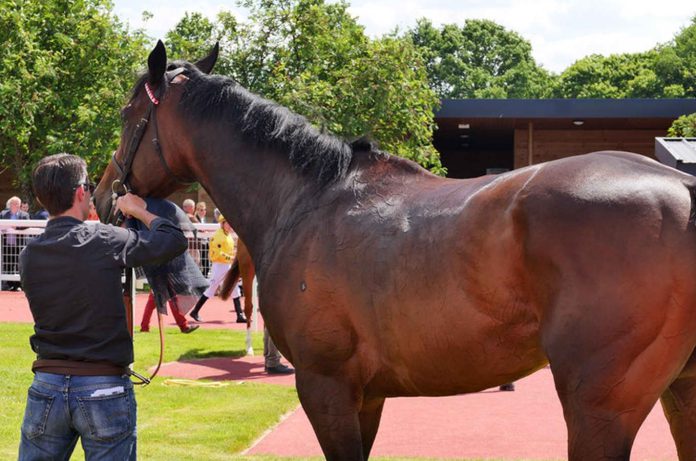Being an equine vet is not an easy job. Every vet has come across difficult cases in everyday life. Dr. Anil Lahane, an equine practitioner has been in this field for more than 8 years. He loves riding horses, and they have always been his first passion. He completed his Graduation from Bombay (Mumbai) Veterinary College, Maharashtra and Post Graduation in Surgery and Radiology from Sardarkrushinagar Dantiwada Agricultural University, Gujarat.
In an interview with LA POLO he talks about the safety measures and how horses should be treated. Dr. Anil Lahane told the team that he learned the basics of equine sports veterinary medicine and surgery from Dr. Phiroz Khamabtta who is one of the finest equine practitioners. He claimed that all the people in his life have taught him new lessons in his career as an equine veterinarian.
His routine is all about keeping eyes on horses under training and to provide them first aid treatment if required. Very occasionally he get calls to attend some emergency viz., colic, fever, injury etc.
He opted for working with horses as it has always been his passion. “Horses are so beautiful, talented yet so sensitive. You take good care of them and they are happy to do their job for you. Whether they are performing on a race track or polo ground or jumping arena. Horses are first passion for me, they keep me happy working for them, caring for them” said Dr. Anil Lahane.
According to Dr. Anil, people need to have patience with horses. Veterinarian, trainer or the owner of the horse plays a very important role in basic safety measures while working with horses. They must handle the horse with confidence and gentleness from day one till the horse lives.
Equine veterinarians come across difficult cases of colic (abdominal pain) and laminitis (inflammation and damage to the laminae) which have many predisposing factors. He told us about the time he once treated a colic horse, which was very challenging and at last the horse got well after 24 hrs of treatment. He kept the horse under observation for the next three days, just to prevent the recurrence of colic.
It is difficult for veterinarians with no or less experience. The number of Equine practitioners in the field are very few. Dr. Anil said horses are like humans. Sensitive and may die if not attended in time. Timely treatment to a horse is very important. Sterile precaution, following dietary protocol in treating any horse are very important. Proper knowledge to the owner/trainer and exercise keeps the horse in optimum fitness and health. Basic protocol like new syringe and needle needs to be followed when a veterinarian treat a horse.
Dr. Anil Lahane believes that any veterinarian can treat horses.
“Don’t make a horse suffer. Don’t hesitate to communicate with an equine veterinarian”. – Dr. Anil Lahane
Medication in horses is same as any other animal. The only difference is the dose. Nasogastric intubation in a horse is a common practice which 90% of the other vet won’t do, as they lack the practical knowledge. The problem is, there are more indigenous horses and less equine veterinarian. With the help of equine vets from all over india awareness should be made about this problem.
Dr. Anil Lahane also shared some Regular treatment protocol which should be followed:
A) giving tetanus toxoid injection
B) every three months rotational Deworming
C) Yearly vaccinations
D) checking complete blood profile and biochemistry of a newly arrived horse
F) keep check on routine stuff like how much feed, type of exercise, consistency of stools (foul-smelling, hard, etc)
D) contact your equine veterinarian in case you have any doubt.
D) Don’t wait for the problem to hunt your horse. Prophylactic measures are anytime important than actual emergency situations.





